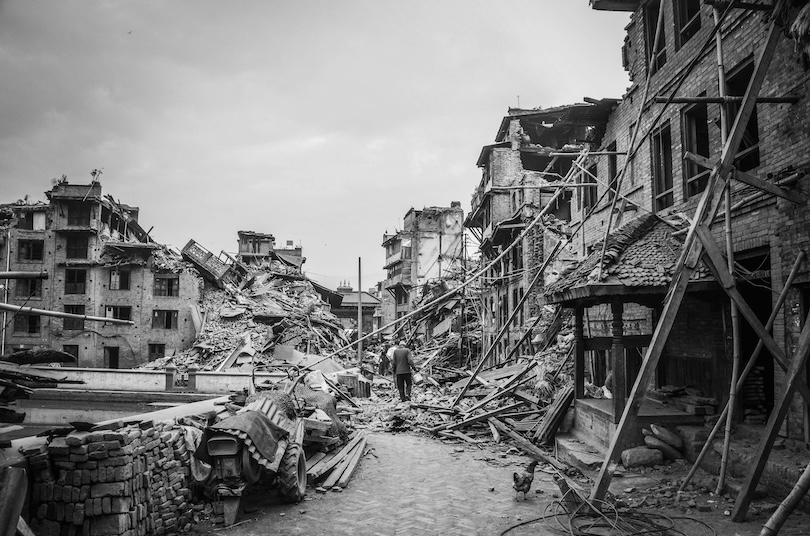Imagine this—you’re at home, maybe watching TV or cooking dinner, when suddenly the ground beneath you starts shaking violently. Before you can react, everything around you collapses. Dust fills the air, and you find yourself trapped under the rubble. It’s dark. It’s silent. And you don’t know how long you’ll be stuck there.
Would you be prepared? What would be in your earthquake survival backpack?
While we never want to think about these situations, the truth is that disasters strike without warning. Having an earthquake survival backpack ready could mean the difference between making it out alive or running out of time before rescuers reach you. Let’s talk about the essentials you need to have—because in a moment like that, every little thing matters.

1. Water and Food: Your Body Can’t Go Long Without Them
- Bottled water: Dehydration sets in fast, and without water, survival time drastically decreases. How much do you have stored?
- Protein bars: Compact, nutritious, and easy to eat even if you’re injured or weak.
- Canned food: Opt for foods that don’t need a can opener, like pull-tab tuna or beans. Have you ever tried opening a can without one?
2. Light and Communication: Making Sure You’re Found
- Flashlight with extra batteries: Pitch-black darkness can be terrifying. Could you find your way out or signal someone in complete darkness?
- Glow sticks: These provide hours of light without needing electricity—an easy way to stay visible.
- Whistle: Your voice will only last so long. A whistle carries farther with less effort. Would rescuers hear you if you called for help?
3. Staying Connected: What If No One Knows Where You Are?
- Old phone with a charged battery: Smartphones drain fast. Do you have an old-school phone that can last for days without a charge?
- Power bank: Even a single extra charge could buy you the time you need to call for help. Do you keep one ready?
4. First Aid: Can You Handle Minor Injuries on Your Own?
- Bandages, gauze, and tape: A small wound can become deadly if left untreated.
- Antiseptic wipes and ointment: Infection is a major risk if you’re stuck for days. How would you disinfect a wound? Some first aid trainings might be a good aspect to you?

- Pain relievers (ibuprofen or acetaminophen): Injuries can be excruciating—having something to manage the pain can help you stay calm and focused. However you must add only what you are not allergic on, to not create even worst then better.
- Gloves and a face mask: Dust, debris, and bacteria are all around. Would you be able to protect yourself?
5. Breathing and Air Quality: Keeping Your Lungs Safe
- Dust mask or N95 respirator: The air after a collapse can be filled with dust and dangerous particles. Could you breathe safely?
6. Multi-Purpose Tools: Small But Essential Items
- Multi-tool or pocket knife: Need to cut, pry, or fix something? A good multi-tool can be a lifesaver.
- Duct tape: It can fix almost anything—what creative ways might you need to use it in an emergency?
- Small mirror or reflective tape: If you can’t yell for help, reflecting light might be your best chance to be seen.
7. Staying Warm and Mentally Strong: Your Mindset Matters
- Emergency blanket: Hypothermia can set in even if it’s not winter. Would you be able to stay warm?
- Notepad and pencil: Time feels endless when you’re trapped. Would writing help you track time, keep hope alive, or even leave a note for rescuers?
Final Thoughts: Will You Be Ready When It Counts?
An earthquake survival backpack isn’t just a bag of supplies—it’s your safety net in the worst possible moment.
Take a minute to ask yourself:
- Do you have an emergency kit packed and accessible?
- When was the last time you checked your supplies?
- Would you be able to last at least 72 hours if trapped?
The best time to prepare was yesterday. The second-best time is right now. Hopefully, you’ll never need it—but if disaster strikes, you’ll be thankful you took action today.
This is my personal opinion on what should include an earthquake survival backpack, and not a professional advice. Always you should consider your own needs to be added into the earthquake survival backpack, based on your health condition, family members, location, climate, current events, etc.
